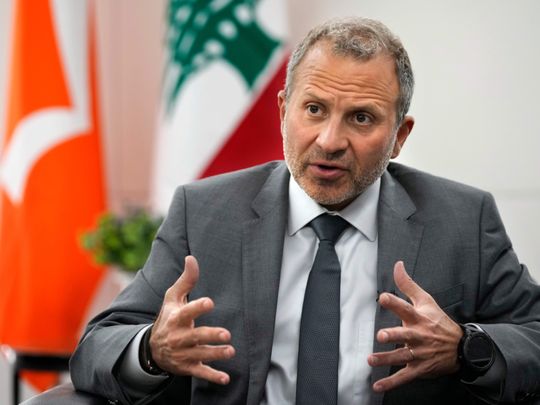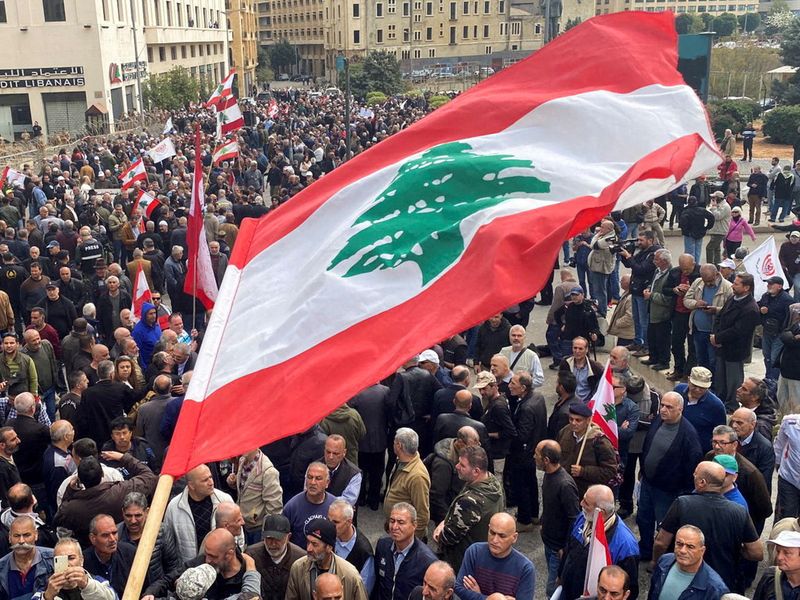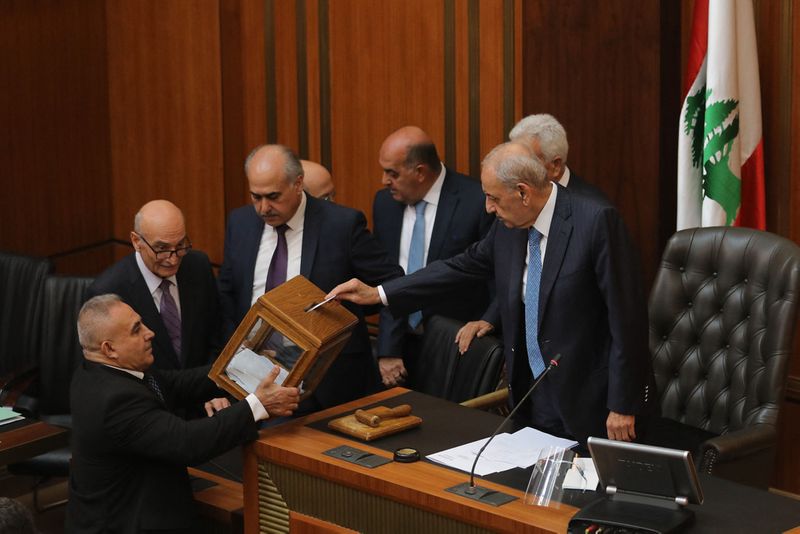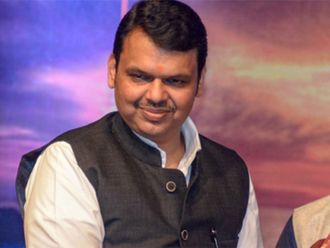
On the last day of 2020, Gibran Bassil talked Hasan Nasrallah into revisiting the Mar Mikhail Agreement, signed 14 years earlier between Hezbollah and his father-in-law, Michel Aoun.
Aoun at the time promised to support Hezbollah with arms. Nasrallah promised to make him president, which he did exactly 10 years later, in 2016. But there was one thing about the 2006 agreement: it made no mention of Gibran Bassil.
Using his tremendous influence on the aging Aoun, Bassil successfully made himself the backbone of his administration as an adviser, foreign minister, and president of the Patriotic Movement (FPM), which controlled the lion’s share of parliament during the Aoun years. Less than two years into his father-in-law’s administration, Bassil hoped that a new Mar Mikhail Agreement would take him to Baabda Palace.
Nasrallah said yes to a Mar Mikhail II — accommodating Bassil, who had been sanctioned by the US for his ties with Hezbollah — but never went through with it. Despite repeated attempts at reviving the Mar Mikhail sub-committee, nothing happened. Hezbollah constantly found excuses to avoid convening, telling Bassil, albeit indirectly, that they would not support his presidential bid. Then it became public: Hezbollah’s presidential candidate would be their longtime ally Suleiman Frangieh, a scion of a historic Maronite political family whose grandfather and namesake had been president in the 1970s.

Bassil shifts to the opposition
Furious, Bassil switched his loyalties to the opposition, joining ranks with two vehemently anti-Hezbollah Christian parties: the Lebanese Forces of Samir Gagegea and the Lebanese Phalange of the Gemayel family. By the time Aoun’s term ended in October 2022, the two former allies had parted ways, showing the fragility of their alliance.
Last June, Bassil put his full weight behind Frangieh’s opponent Jihad Azour, openly challenging Hezbollah in parliament. As a result, both Frangieh and Azour failed to secure the necessary number of votes and Lebanon was allowed to drift into a presidential vacuum which continues even after 12 months down the road.
Nasrallah sent emissaries to Bassil, suggesting that he drop his support for Azour and return to the Hezbollah fold, with vague promises of making him president after Frangieh’s term ends. Bassil came back with a counter-proposal, saying that he would drop Azour in return for Hezbollah dropping Frangieh, and the two sides would go for a third name: ex-interior minister Ziad Baroud.

Resumption of talks
When that failed, a new proposal began making the rounds, one that was new and innovative where in exchange for supporting Frangieh, or at a bare minimum — not opposing him — Hezbollah would agree to a law of administrative decentralisation that would empower Christian municipalities and governorates. This was something that Nasrallah felt was worth discussing, delegating Mohammad Raad, a senior member of Hezbollah, to discuss it with Bassil.
On September 10, 2023, the two sides created a sub-committee to discuss decentralisation. Bassil presented them with a full-fledged proposal, which he had personally penned with his advisers, adding a clause for financial decentralisation that also dilutes the powers of the Ministry of Finance, held by Hezbollah’s allies in the Amal Movement.
Even if Hezbollah agrees to administrative decentralisation, it cannot approve financial decentralisation without an okay from its longtime ally Nabih Berri, speaker of parliament and head of the Amal Movement. Bassil has an axe to grind with Berri — they never got along, neither during the Aoun years nor before or after. But under no circumstances would Hezbollah accommodate Bassil at Berri’s expense. Bassil can get one of his demands, but certainly not both.

The Berri initiative
On August 28, 2023, Nasrallah described the status of the talks that led to the joint committee on September 10 as “deep and serious.” He quickly added, “reaching a deal needs some time.” Coinciding with the renewed talks comes an initiative by Berri, calling for roundtable talks between all stakeholders, followed by an open session of parliament to elect a new president within seven days, saying that this ought to be completed in September.
Hezbollah supports the idea, and so does Gibran, Druze leader Walid Junblatt, and the Maronite Patriarch, who sees it — very correctly — as very similar to what the French envoy Yves Le Drian has been calling for, most recently during his mid-September visit to Lebanon. Opposing the Berri initiative is Samir Geagea and the Lebanese Forces, who feel that Bassil has used them to get back at Hezbollah or to provoke Nasrallah into resuming talks with him.
He is saying that roundtable talks should happen after a president is elected, not before. Bassil is now suggesting a third way forward if the decentralisation law passes with Hezbollah: He will withdraw his support for Azour, Hezbollah would do the same with Frangieh, and they would agree on a new fresh name backed by Hezbollah and the Free Patriotic Movement.
But for now, Hezbollah remains uninterested in discussing new names. It has no Plan B for Frangieh. Will Bassil accept him in return for administrative decentralisation?
Time will tell.
— Sami Moubayed is a historian and former Carnegie scholar. He is also author of Under the Black Flag: At the frontier of the New Jihad.










